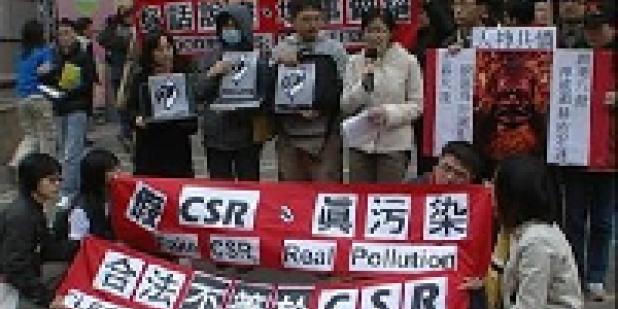Join us for a free one-day workshop for educators at the Japanese American National Museum, hosted by the USC U.S.-China Institute and the National Consortium for Teaching about Asia. This workshop will include a guided tour of the beloved exhibition Common Ground: The Heart of Community, slated to close permanently in January 2025. Following the tour, learn strategies for engaging students in the primary source artifacts, images, and documents found in JANM’s vast collection and discover classroom-ready resources to support teaching and learning about the Japanese American experience.
"Invisible” Pollution? Examining Taiwan’s High-tech Environmental Disputes from STS Perspective
The Institute of East Asian Studies at UC Berkeley presents a lecture by Wen-Ling Tu from the National Chengchi University in Taiwan on core perspectives brought by Science, Technology, and Sustainability on the invisibility of pollution problems.

S. Katharine Hammond, Environmental Health Sciences, School of Public Health, UC Berkeley
Wen-Ling Tu, National Chengchi University, Taiwan
Asia has become the major production base for electronic products since the late 1990s. Behind the booming of high-tech economy, however, it’s been seldom noticed that the electronic production is a chemical-use intensive industry, and its manufacturing processes release hundreds of chemicals and constantly generate thousands of tons of wastewater per day. Taking the example of “Silicon Island” Taiwan, this talk discusses the arduous task to detect the pollution problems associated with electronic manufacturing and analyzes the current policy and regulatory framework for the management of hazardous substances in the electronic sector. The talk will emphasize “invisibility of pollution problems” from two perspectives. On the one hand, it implies that the pollutants released from the electronic manufacturing firms are often visually invisible and unregulated by the current environmental standards. On the other hand, the environmental risks caused by the electronic production are often underestimated or marginalized in the environmental decision making process under the political agenda of promoting information technology (IT) development. From the science, technology, and society (STS) perspective, this talk will also discuss the plight of the environment knowledge production in relation to Taiwan’s electronics manufacturing industries; and endeavors to resolve the professional/information/resource monopoly as well as the structural constraint problems behind the high-tech environmental information production system. Despite the obstacles, the talk will highlight some positive impacts made by social advocacy for the responsible and sustainable high-tech industry, which brought the international precautionary perspectives and the information disclosure rules into the domestic policy framework to readdress the environmental and health safety issues associated with the electronic production.
Featured Articles
Please join us for the Grad Mixer! Hosted by USC Annenberg Office of International Affairs, Enjoy food, drink and conversation with fellow students across USC Annenberg. Graduate students from any field are welcome to join, so it is a great opportunity to meet fellow students with IR/foreign policy-related research topics and interests.
RSVP link: https://forms.gle/1zer188RE9dCS6Ho6
Events
Hosted by USC Annenberg Office of International Affairs, enjoy food, drink and conversation with fellow international students.
Join us for an in-person conversation on Thursday, November 7th at 4pm with author David M. Lampton as he discusses his new book, Living U.S.-China Relations: From Cold War to Cold War. The book examines the history of U.S.-China relations across eight U.S. presidential administrations.




